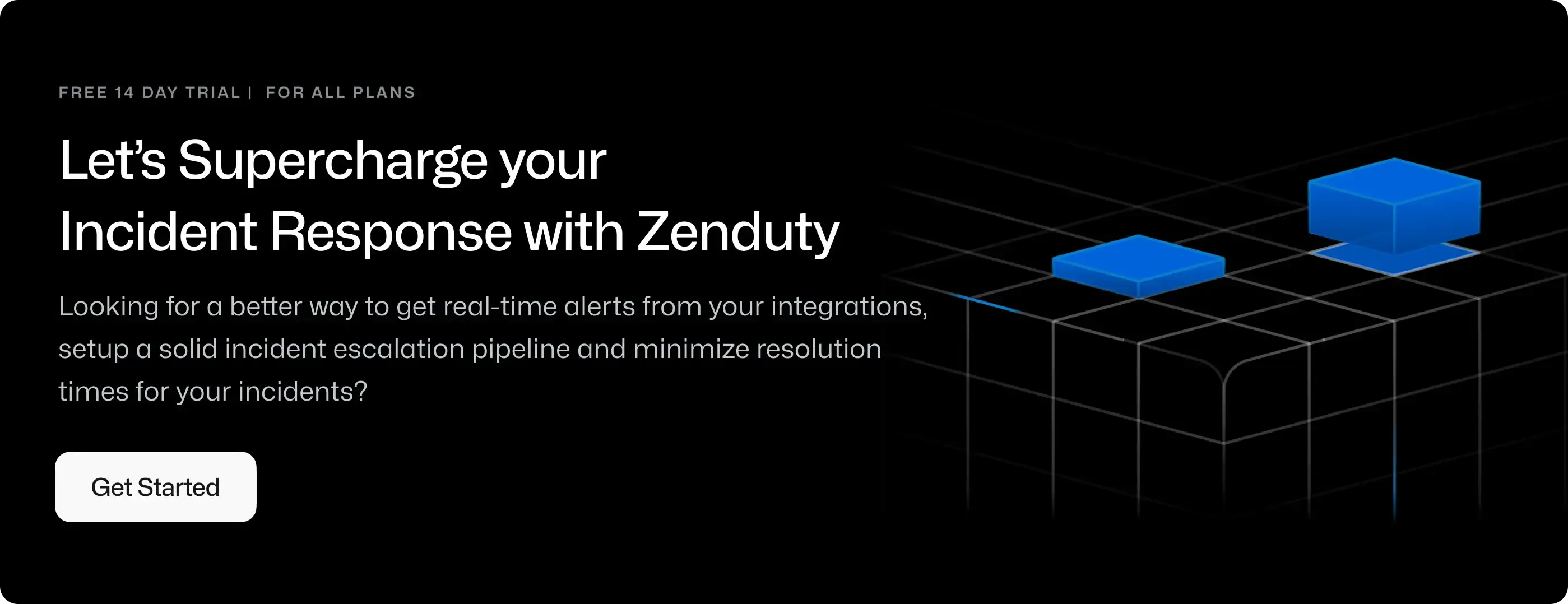Jenkins Integration Guide
Jenkins is a self-contained Java-based program, ready to run out-of-the-box, with packages for Windows, Mac OS X and other Unix-like operating systems
What can Zenduty do for Jenkins users?
With the Zenduty integration, you will be able to receive context notifications about new builds. These alerts are then sent to the right team and notifies them based on on-call schedules via email, text messages(SMS), phone calls(Voice), Slack, Microsoft Teams and iOS & Android push notifications, and escalates alerts until the alert is acknowledged or closed.Failed builds will also trigger new incidents in Zenduty.
To integrate Jenkins with Zenduty, complete the following steps:
In Zenduty:
- To add a new Jenkins integration, go to Teams on Zenduty and click on the team you want to add the integration to.
- Next, go to Services and click on the relevant Service.
- Go to Integrations and then Add New Integration. Give it a name and select the application Jenkins from the dropdown menu.
- Go to Configure under your Integrations and copy the Webhook URL generated.
In Jenkins:
- Log in to your Jenkins instance.
- Install the Jenkins Notifications plugin from the Jenkins marketplace.
- Navigate the the job from which you wish to receive alerts.
- From the left panel, click on Configure
- Click on the Job notifications tab on the top. Click on Add Endpoint.
- Under format, select JSON. Under protocol, select HTTPS. Under event, select All Events.
7. Under URL source, select Plain text. In the URL field, paste the integration URL you copied earlier.

8. Click on Save to apply the settings.
Respond to Jenkins Integration alerts faster
Looking for a better way to get real-time alerts from Jenkins Integration, setup a solid incident escalation and incident response pipeline and minimize response and resolution times for Jenkins Integration incidents?
